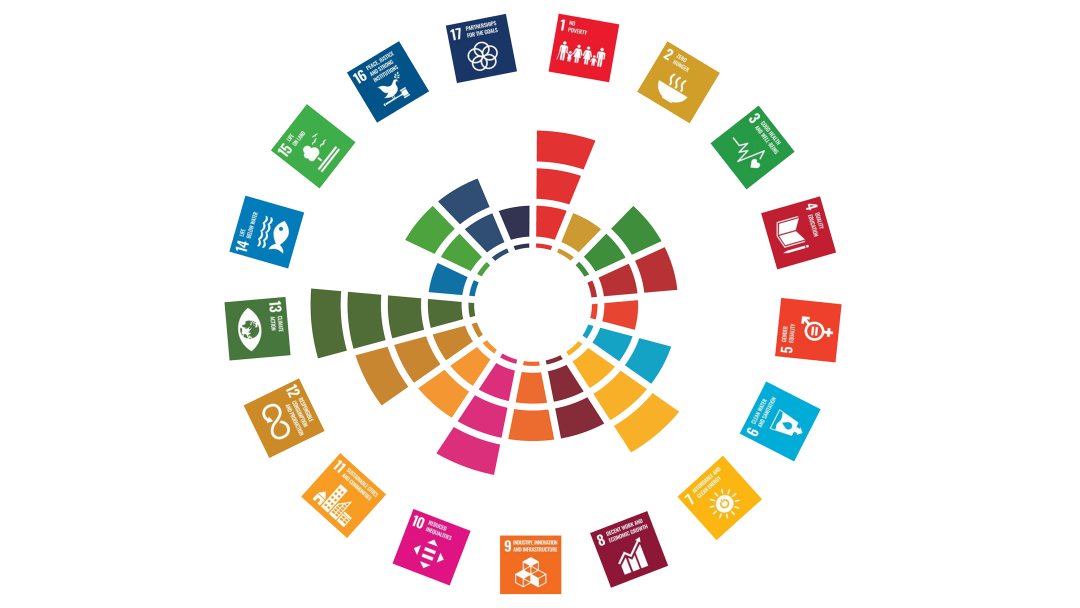Since 2015, the 2030 Agenda for Sustainable Development has been the compass for development cooperation. However, the seventeen goals are not only the decisive guideline for the international community, but also for each country itself. The SDGs apply universally, equally to all, and encompass the three dimensions of sustainability – social, environmental and economic.
"Leave No one behind" – was the hopeful slogan at the time. However, it is now clear that the SDGs cannot be achieved without additional efforts. Far too many people are still left behind: they are poor, sick, hungry or have no electricity, no clean water, have to work under intolerable conditions or are discriminated against. They are not yet entitled to what they need for a decent life. The promises made in 2015 are far from being fulfilled.
The 2023 mid-term review already showed a sobering picture. At the time, the UN stated that the goals would largely be missed: There were signs of a positive trend in half of the goals and sub-goals, but this was not strong enough. In almost a third, development progress was even lost. The world was only on track for 15 percent of the goals in 2023. The conclusion at the time was that this was not enough to achieve the projected goals by 2030.
A year later at the Future Summit, the outcome was very similar. There, the international community adopted a ‘Pact for the Future’, in which it even sees the realisation of the SDGs ‘at risk’. Progress on most of the SDGs was either too slow or development had fallen below the 2015 level, it said. At the same time, it confirmed the 2030 Agenda as the common global framework for the future and promised to do more to promote the SDGs. The aim was to take ‘bold, ambitious and accelerated’ steps to achieve this.
There are various reasons for the failure to achieve the goals so far: Crises of all kinds keep the world on tenterhooks, from the Middle East to Ukraine. In addition, there are minor and major conflicts such as in Yemen, Sudan, Congo, but also in Niger, Cambodia, or Venezuela. "We are currently experiencing the highest number of conflicts since the end of the Second World War," complains UN Secretary-General Guterres. A quarter of humanity lives in conflict-affected areas. All this, together with a debt crisis and widely tottering democracies, has prevented the SDGs from being achieved so far. The UN therefore hopes that the ‘Pact for the Future’ will give the SDGs new momentum for the remaining five years of their validity.
As one of the largest financing organisations in international cooperation, KfW Development Bank has supported its partner countries in implementing and achieving the SDGs in recent years. With its financing, KfW contributes in principle to all the goals of the 2030 Agenda.

In the last financial year, new commitments amounted to around EUR 7.8 billion. Two particular focal points were climate protection (SDG 13) and the promotion of affordable and clean energy (SDG 7) – two areas that are closely linked. Other focus points were the fight against poverty (SDG 1) and inequalities (SDG 10) as well as the promotion of responsible consumption and production patterns (SDG 12).
Achieving the SDGs will require enormous investments that cannot be made from public funds alone. The mobilisation of private capital, particularly through the instrument of impact investment, is therefore becoming increasingly important in development finance.
KfW will not let up in its commitment to achieving the SDGs; they will continue to guide its actions – also for the remaining time until 2030. As before, it will always be guided by the overarching core messages of the 2030 Agenda: promoting human dignity and peace, protecting our planet, well-being for all and advocating for global partnerships.